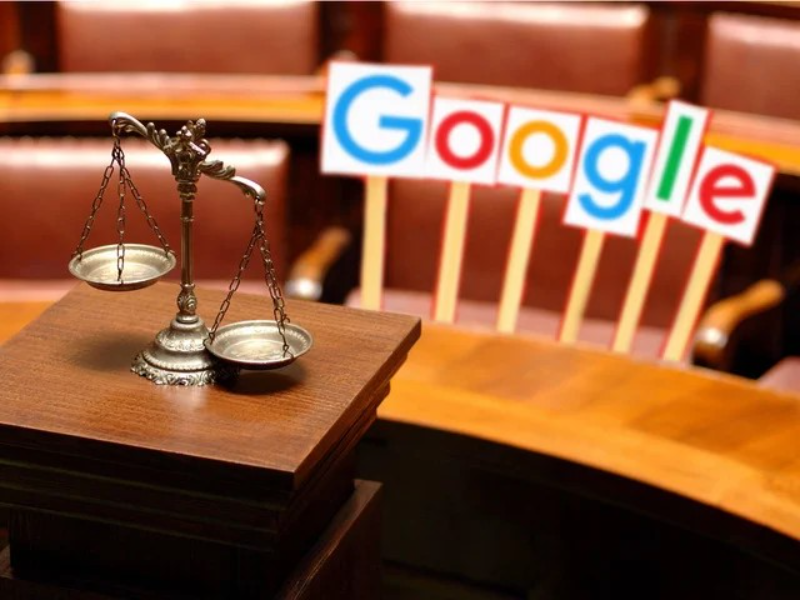- A U.S. judge has ruled that Google violated antitrust laws by establishing an illegal monopoly in the search engine market.
- The decision sets the stage for a second trial to determine remedies, which may include the breakup of Alphabet, potentially reshaping the online advertising industry that Google has long dominated.
OUR TAKE
According to the judgement of US District Judge Amit Mehta in Washington DC, Google has been charged for violating antitrust laws, and its illegal monopoly position constructed through huge investments has been formally confirmed. The ruling not only poses a direct legal challenge to Google and its parent company, Alphabet, but also provides a new judicial precedent for scrutinising and regulating the market behaviour of large technology companies. As the judgement is announced, the public, the industry, and regulators will be watching closely to see the far-reaching implications for the online advertising industry and the technology sector as a whole.
–Elodie Qian, BTW reporter
What happened
A US judge has determined that Google has breached antitrust laws, creating an illegal monopoly by investing billions of dollars to cement its position as the world’s leading search engine. This ruling is a significant step for federal authorities in their efforts to address the market dominance of Big Tech companies.
The decision sets the stage for a subsequent trial to consider potential solutions, such as the possible dissolution of Google’s parent company, Alphabet. This could significantly reshape the online advertising industry, which Google has long dominated.
In his ruling, US District Judge Amit Mehta of Washington, D.C., stated, “Google is a monopolist, and it has acted as one to maintain its monopoly.” Google’s market share is substantial, with approximately 90% of the online search market and 95% on smartphones.
The “remedy” phase of the case could be protracted, with the potential for appeals to the US Court of Appeals for the District of Columbia Circuit and the US Supreme Court. The legal process may extend into the next year or even 2026.
Alphabet’s stock price fell by 4.5% on the day of the ruling, amidst a general downturn in tech stocks due to concerns over a possible economic recession. Google’s advertising revenue, which made up 77% of Alphabet’s total sales in 2023, is central to this case.
Alphabet has announced its plan to appeal Judge Mehta’s ruling. Google’s statement reads, “This decision recognizes that Google offers the best search engine, but concludes that we shouldn’t be allowed to make it easily available.”
Also read: EU antitrust regulators investigate Google and Samsung’s AI deal
Also read: Google CEO Sundar Pichai to testify Monday in US antitrust trial
Why it’s important
US Attorney General Merrick Garland described the ruling as “a historic win for the American people,” asserting that “no company – no matter how large or influential – is above the law.” White House Press Secretary Karine Jean-Pierre also celebrated the ruling, calling it a “pro-competition ruling” and a “victory for the American people.”
Judge Mehta noted Google’s 2021 payment of $26.3 billion to ensure its search engine remains the default on smartphones and browsers, maintaining its dominant market share. He wrote, “The default is extremely valuable real estate.”
The ruling is the first major decision in a series of cases challenging alleged monopolies in Big Tech. The case was filed by the Trump administration and was heard by a judge from September to November of the previous year.
Emarketer senior analyst Evelyn Mitchell-Wolf commented on the potential impact, stating, “A forced divestiture of the search business would sever Alphabet from its largest source of revenue. But even losing its capacity to strike exclusive default agreements could be detrimental for Google.”
In the past four years, federal antitrust regulators have also taken legal action against Meta Platforms, Amazon.com, and Apple, alleging that these companies have unlawfully maintained monopolies. These cases were initiated under the administration of former President Donald Trump.
Senator Amy Klobuchar, chair of the Senate Judiciary Committee’s antitrust subcommittee, highlighted the bipartisan support for antitrust enforcement, stating, “It’s a huge victory for the American people that antitrust enforcement is alive and well when it comes to competition.”

